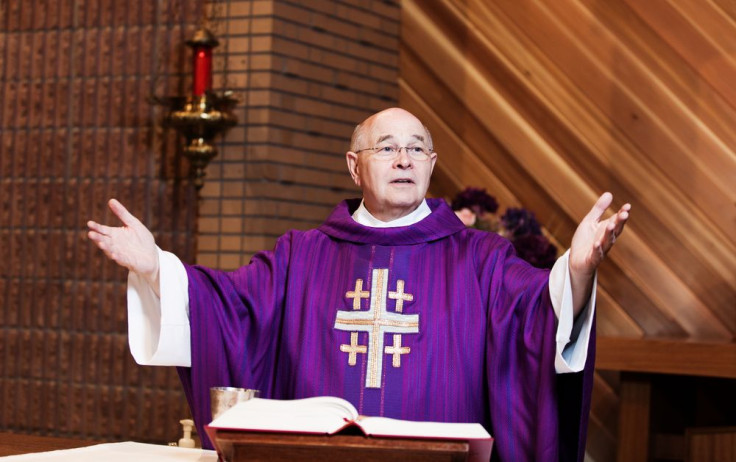Clergy Members Battle Obesity: One-Third Of Pastors In The US Are Obese

Maybe this is why our pastors wear a lot of black. A recent study conducted at Baylor University’s College of Arts & Sciences has suggested why around one-third of clergy members in the United States are struggling with obesity. Luckily, the pastoral professional does have built-in methods for dealing with weight gain, including a day off each week, a sabbatical, and support groups.
“Pastors are an integral part of the most intimate aspects of community life — marriages, deaths, births — and these often entail food,” Todd W. Ferguson, a doctoral candidate in sociology in Baylor’s College of Arts & Sciences, said in a statement. “It’s part of the culture.”
Ferguson, a former associate pastor in a Houston Baptist church, and his colleagues gathered data using the Random Sample Leader Survey from the U.S. Congregational Life Survey. The survey sample included 539 clergy members from various denominations and religious traditions.
Clergy members were given a “distress index” that asked how often in the past year they had: “had too many demands made on them by congregation members,” “experienced stress because of dealing with critical congregants,” “felt lonely and isolated in their work,” “experienced stress because of the challenges they faced in their congregation,” and “worked more than 46 hours per week.”
According to Pulpit & Pew, an interdenominational research project on pastoral leadership, clergy work was considered one of the healthier professions in the past, just below teachers in terms of low mortality rates. However, recent data has found the obesity rate in clergy members has climbed to 30 percent.
Ferguson’s research team found that this rise in obesity rates among clergy members was due to the profession being a high-status occupation with poor compensation compared to other professions. This leads clergy members to pursue bi-vocational work, meaning they have two or more vocations. Results showed that 10 percent of respondents lead more than one congregation and 15 percent are involved in a completely different profession altogether.
“In many religious traditions, the theology actually mandates at least one day a week to recuperate,” Ferguson said. “Also, some pastors have the opportunity to be part of a small, intensive, introspective group of other pastors, and that can help with stress. There are structures in place that can actually help them cope and lower their chances of obesity.”
So the long hours and the demand pastors deal with on a daily basis due to their congregation, on top of a second job, leaves little time for exercise, a well-balanced diet, and time to recover from physiological stress.
“Pastors are ‘on’ or ‘on call’ at all times. The role or identity of a pastor is something you can’t just shut off,” Ferguson added. “And you are in an organization that relies partly — or even fully — on volunteers rather than a paid staff, who can leave on a whim.”
Not all is lost. This new study also found that 20 percent of clergy had taken a sabbatical in the past 10 years that allotted time for rest, professional refreshment, and renewed motivation. In addition, 43 percent are involved in a support group that helps members deal with personal hardships. Ferguson concluded by stating clergy members can find emotional support through peer groups that can help aid in weight loss.
Source: Stroope S, Martinez B, Tom J, Andercheck B, Ferguson T. Occupational conditions, self-care and obesity among clergy in the United States. Social Science Research. 2015.
Published by Medicaldaily.com



























